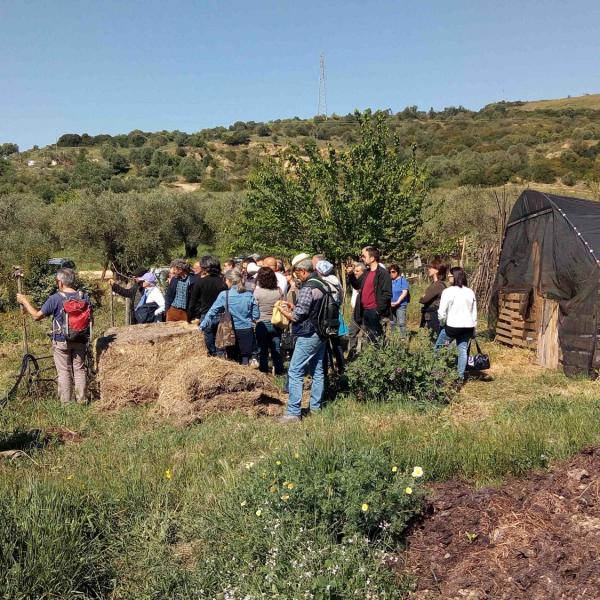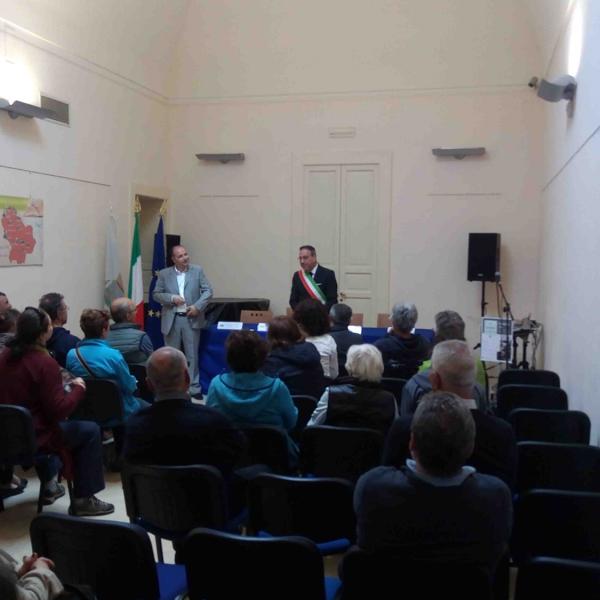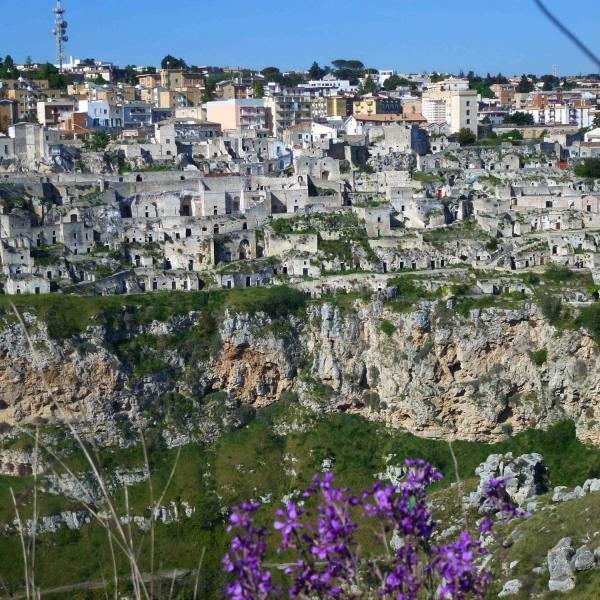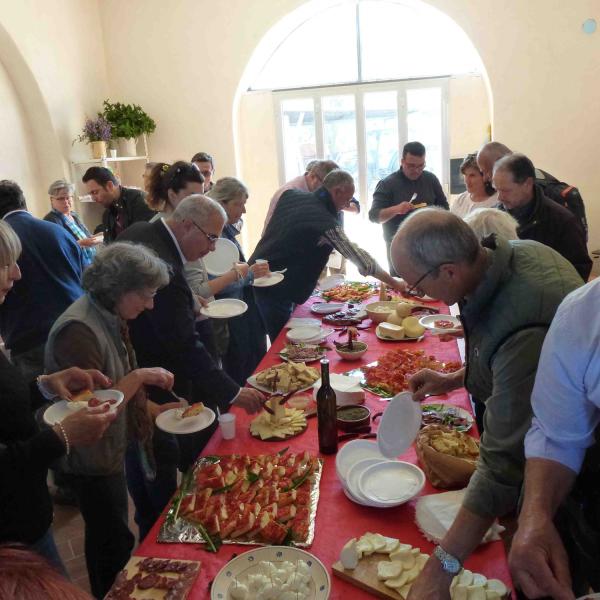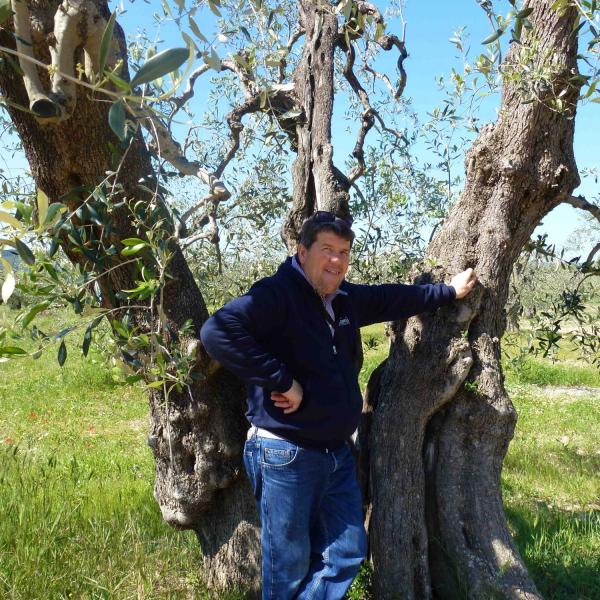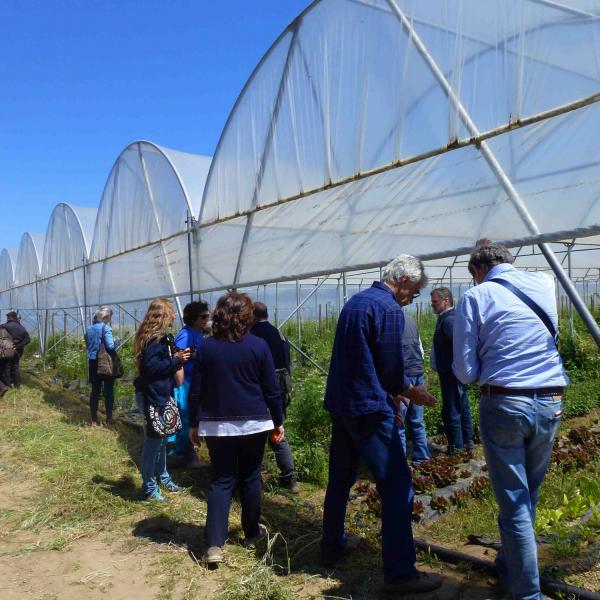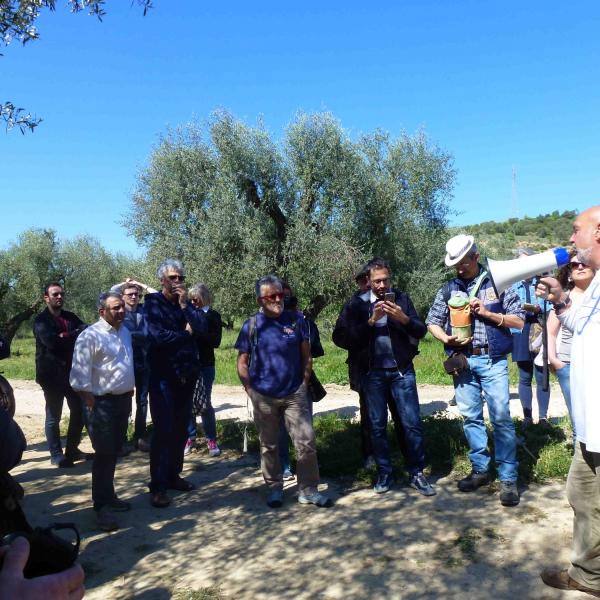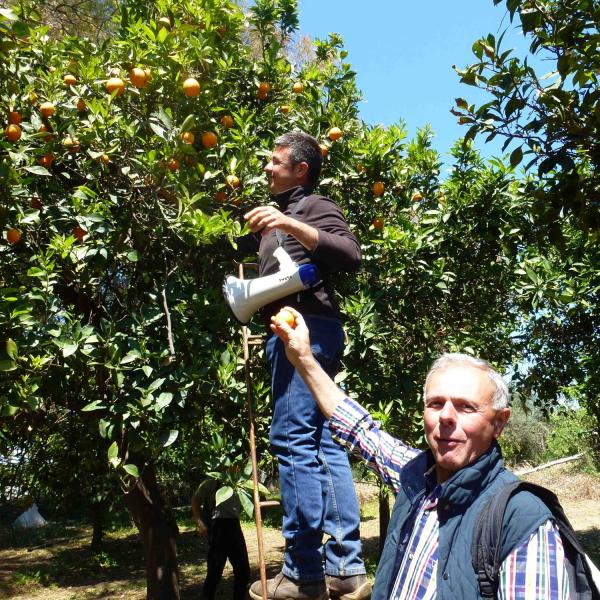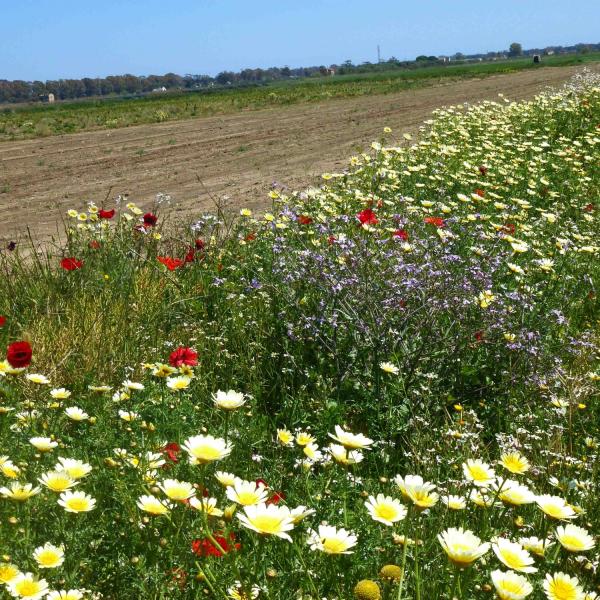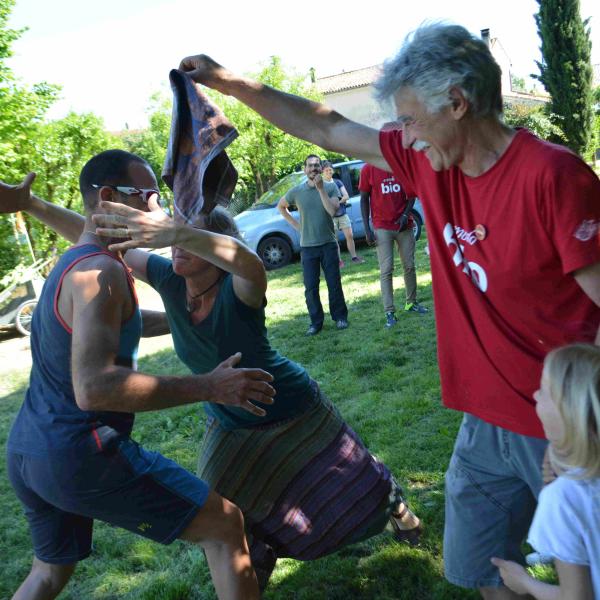Trip to Basilicata: report and photos
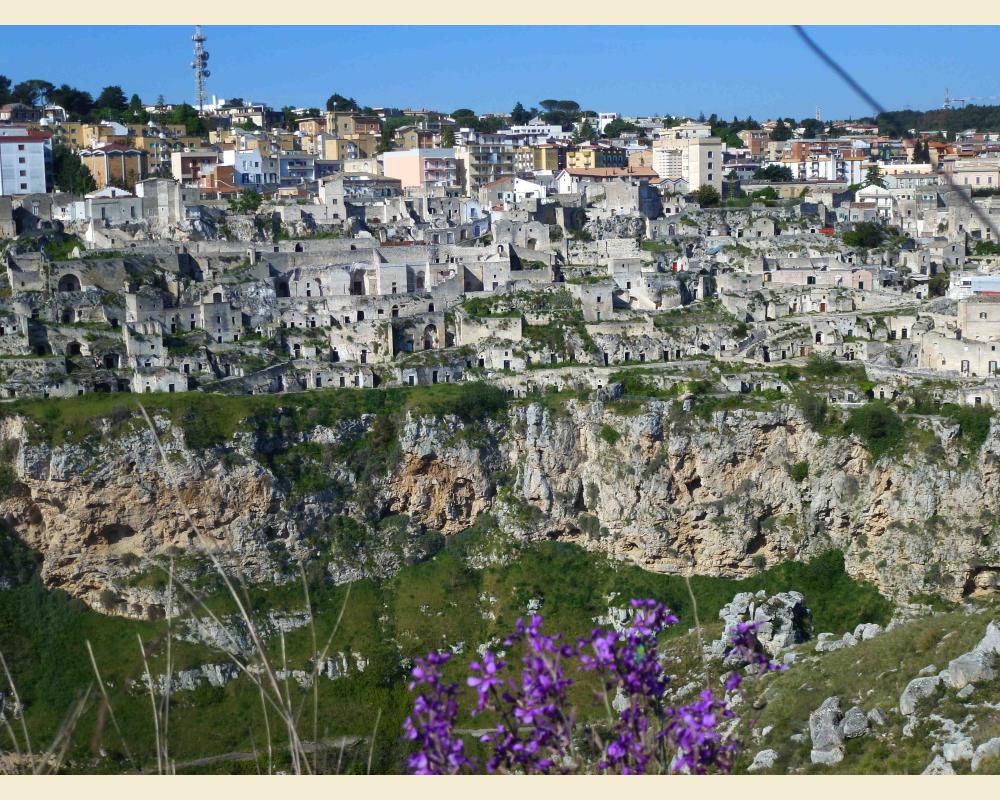
From 22 to 25 April, the last (before the next) trip (or “educational tour” as indicated by our Lucan friends) of our Cooperative took place.
With 33 people present, including producer members and sympathizers of the two Cadorini GAS, we had the honor of being hosted and guided by many representatives of Con.Pro.Bio Lucano.
The Con.Pro.Bio. Lucano is a Consortium of Organic and Biodynamic Producers that consists of forty agricultural producer members who are among the first “pioneers” in the sector, mainly Lucans located throughout the region. It was founded in 2005 as a public initiative by ALSIA (Regional Agency for Development and Innovation in Agriculture) with the aim of combining the needs of producers and consumers who share a passion for agriculture and natural nutrition.
Before being admitted to the Consortium, the new organic producer member, in addition to being in compliance with the “official” certification, must enjoy (or win) the trust of other members, that is, he must be presented by an effective member and, of course, share his founding values.
In Con.Pro.Bio Lucano, the sharing of these values matters much more than pure economic-commercial aspects. We were able to see it well during the visit to the companies and to the territory. Arriving at the airport in Bari, we headed to Maria Laura Castoro's “La Fiorita” organic farm, founded by her father, Giuseppe, who was also the first promoter and president of ConProbio Lucano. In this truly multifunctional farmhouse company (practically all the excellent meals were made with company products) we began to appreciate the hospitality and the spirit of sharing of
the organization. Onthe morning of the 23rd, we moved to Bernalda to visit Rocco Torraco's gardens, who explained some very interesting techniques of Regenerative Organic Agriculture. We have been able to see how simple it is to self-produce small systems for the development and reproduction of preparations to increase the vitality and fertility of agricultural land.
It was the way in which we were introduced to the method of regenerative agriculture where everyone (or one for all) is able to make preparations capable of giving vitality to cultivated land. We then went to visit, at Pisticci Scalo, the Salvatore Corrado Farm where we saw organic techniques in the cultivation of medicinal plants, visiting the extension of his possessions and the various activities, including the drying of aromatic and medicinal plants, in the process of
further evolution.It must be said that this visit, which ended with a rich buffet of organic products, was preceded by the presentation of the Bioland company of the Loiudice family who, following problems of allergies to modern grains, were among the first to take the path of recovering and enhancing the ancient selections of durum grains and other species cultivated for the production of flours intended for pasta, bread and so on other important dishes.
In the afternoon we stopped at the controversial MarinAgri village and then moved to the Farina Maria Farm, where the unstoppable source of information and reflection Dr. Pino Mele (who accompanied us throughout the day with the description of the territory and the cultural influences that have affected the development of the territory and of the so-called modern Lucan agriculture) spoke to us about his company and the Land Reform in Basilicata and Metapunino (cit. “We Had a Good Time in the Future”) and examples of biological pest control in Organic
Citrus Grounds.The long and very interesting day ended with a visit to Leonardo Angelone's farm, who welcomed us to explain in depth some techniques of Biodynamic Agriculture, the Podolinsky method, in Fruit and Vegetables. We had the opportunity to ask and discuss the method and its application.
Upon returning to their accommodation, some took the opportunity to see the beautiful Matera by Night. On the morning of the 24th, after an abundant breakfast, we had the opportunity to be accompanied on a guided tour of the Matera Sassi, followed by an excellent lunch enjoyed with a breathtaking view of the entire Matera, at “Gli Scalcione”, former managers of the first organic restaurant in Matera, open when it was still practically uninhabited. In the afternoon we visited the Scalcione Nicola Farm; Organic Agriculture Techniques and Synergistic Garden, and then quickly moved to the Agora and the Palatine Tables. Then, last memorable dinner at Maria Laura's farmhouse.
On the day of departure, before taking the bus, we were accompanied on a visit to the Castoro family farm, where Mr. Giuseppe made us discover the beauty of the territory and the beauty that man can derive from nature when he lives in harmony with it and not in opposition to what they want us to understand is better! We visited the ancient grain storage and defrosting center at ConProbio Lucano, with the techniques for preserving and processing organic cereals. It was the way to learn more about another important part of the Consortium's activities, which were being valued at this time, to try (in our opinion with all the credentials given to people and products) to regain part of the margin that modern distribution tries to steal from the farmer.
Late in the morning we stopped at the Pinacoteca D'Errico in Palazzo San Gervasio (which curiously has Saint Anthony of Padua as its patron) where we were received (a well-organized surprise by his friend Michele Monetta) by the Mayor Michele Mastro, who expressed thanks from the local population for the intervention of people who care about the territory, many Lucans but also our cooperative through an e-mail Franco Zecchinato on the occasion of the TecnoSolar affair, where a foreign multinational wanted occupy 200 hectares of fertile Lucan territory for the construction of an oil-thermodynamic plant for the
The unexpected and not even remotely suspected effect of this e-mail was the sensitization of the local population to the problem and therefore to the development of a movement of people and associations that fought and won the battle. As a sign of gratitude, the Mayor presented the president of El Tamiso with a plaque. The quick visit to the art gallery and the archaeological museum of the finds found in the area has left us once again more convinced that Basilicata is a region that absolutely must be visited and safeguarded, for the places and for the people who live there, since it is evident that the descent from the Greek populations that migrated to the Ionian several centuries ago, was not closed in a museum but lives every day in their
actions.A big thank you to the entire ConProbio and to all the members and collaborators of the consortium who accompanied us on this training journey. In particular to our friend Michele Monetta who has put himself at our complete disposal for the organization and for the guide these days.
